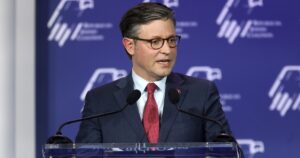South Carolina Supreme Court Strikes Down Key School Funding Initiative
The decision announced on a recent Wednesday, saw a close 3-2 split among the justices. The ruling determined that the ESTF program, designed to assist families by covering costs at private and better public schools, violated state constitutional provisions.
Specifically, the court found the program breached the state’s ban on funding the direct benefit of private educational institutions.
Implications of the Court’s Decision
The timing of the court's decision coincided with the commencement of the new school year, affecting 2,880 scholarships. Families had already received one installment of $1,500, intended to support their children’s education for the year.
This has left many in a precarious position, unsure of how to proceed with their educational plans.
Diverse Reactions Across Political and Social Spectrums
Reactions to the ruling were swift and varied. Associate Justice D. Garrison Hill emphasized the court’s duty to uphold the Constitution, stating, “Our duty is to serve the Constitution, the supreme policy of our land...Our obligation is not to allow a rug to cover up well-marked constitutional ground, no matter how inconvenient that ground may prove to be to otherwise arguably salutary policies.”
On the other hand, Governor Henry McMaster voiced his concern over the ruling’s impact on low-income families, highlighting the immediate adverse effects and vowing to seek a reconsideration of the decision. “The Supreme Court’s decision may have devastating consequences for thousands of low-income families,” he said.
Legal Opinions and Constitutional Debates
Chief Justice John W. Kittredge stood in dissent, arguing that the scholarships provided only an indirect benefit to private schools, which he believes remains constitutional under state law.
Amidst these legal interpretations, Wendy Damron, President of Palmetto Promise, criticized the decision as a misreading of the Constitution and pointed out the inconsistency with other state-supported educational programs for different age groups.
“How is a program for K-12 students any different? It is unconscionable that the Supreme Court would rip away these scholarships from children and families counting on the funds for their education this year,” Damron argued.
Looking Ahead: Political and Legal Maneuvers
The ruling has sparked a broader debate about the role of public funds in private education, a topic that has been contentious across the United States.
As the state grapples with the implications of this decision, legal experts and lawmakers are poised to engage in further debates and, potentially, legislative adjustments to align the state’s educational funding practices with the constitutional framework outlined by the court.
For now, thousands of families and their children face uncertainty as the educational landscape adjusts to the new legal realities.




